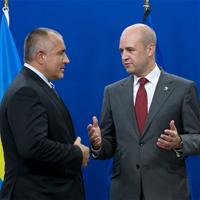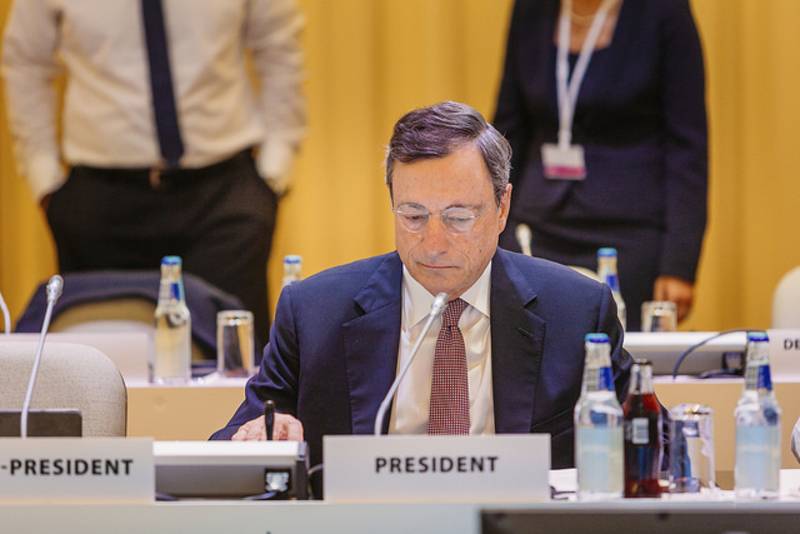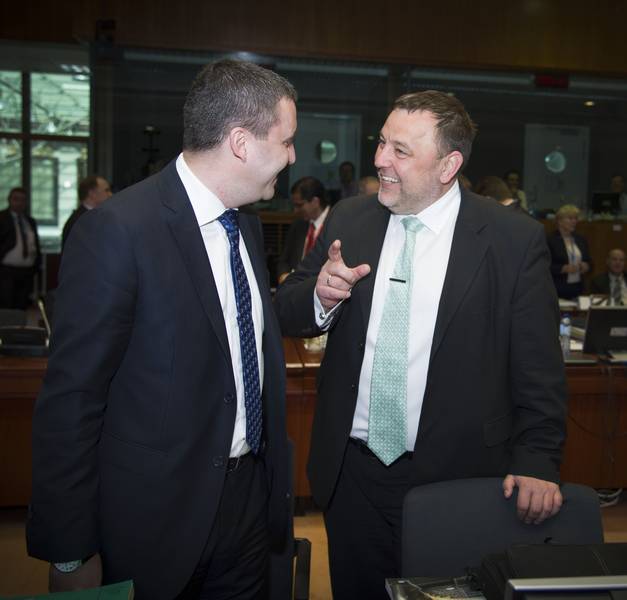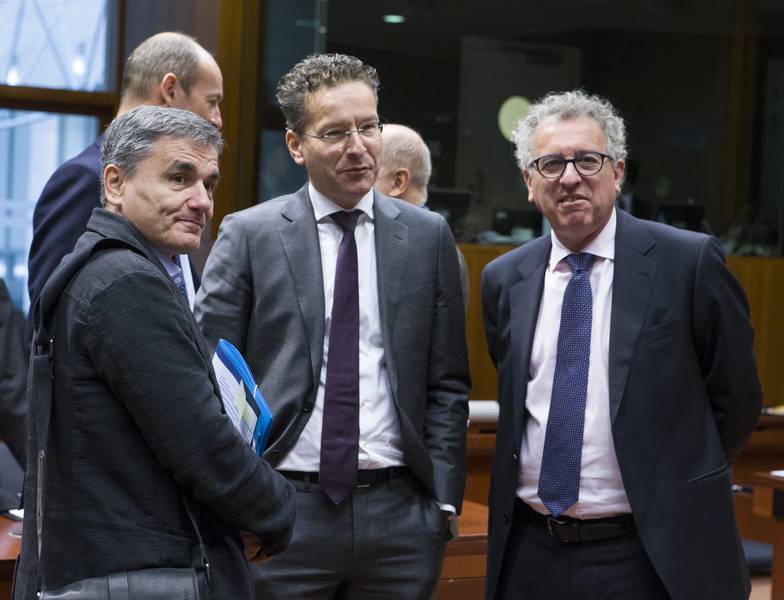A week before Pittsburgh the EU has come up with a common and tough position
Adelina Marini, September 22, 2009
 Just 2 days remain until the G20 summit in Pittsburgh, the US, but will the expectations for finding a solution to 2 of the most pressing global problems, will come up? The reason for the lack of clarity on this issue is that these 2 most pressing issues are so complex that the need for their urgent solving makes them even harder to solve. These are the measures to prevent repeat of the global financial and economic crisis and the new climate change deal that is to replace the unsuccessful Kyoto Protocol. On both issues, the differences are serious.
Just 2 days remain until the G20 summit in Pittsburgh, the US, but will the expectations for finding a solution to 2 of the most pressing global problems, will come up? The reason for the lack of clarity on this issue is that these 2 most pressing issues are so complex that the need for their urgent solving makes them even harder to solve. These are the measures to prevent repeat of the global financial and economic crisis and the new climate change deal that is to replace the unsuccessful Kyoto Protocol. On both issues, the differences are serious.
One of the keys to achieving a common global position on prevention any repeats of the crisis, is enhancement of the global financial regulation, as well as restrictions on the remunerations of the senior managers of bank institutions. On the issue of remunerations the positions of the US and the EU are very different. And regarding climate change, the problem is who and what concessions will make so that in the short and the medium-term the economy would not suffer. And here the argument is among the developed countries themselves, as well as between them and the developing states.
Regarding the first issue - the financial crisis - the EU will be represented as a legal entity at the summit, being a member of the G20 and with a common position. The good news is that at the informal European Council last week (the summit of EU leaders) for the first time, I dare say, a very detailed, broad and tough position has been adopted, a position that reflects the compromises among the member states. And the better news is that Bulgaria for the first time (in my humble opinion) announced its visions on some of the big issues.
The financial regulation
In its conclusions the European council insists the G20 to commit to a globally coordinated system of macro-prudential supervision, based on close cooperation of the IMF, the FSB and the supervisory authorities, with effective exchange of information. Besides, the EU wants accounting standards-setting bodies to accelerate their joint work on a single set of high-quality global accounting standards, as well as to strengthen oversight of systemically important financial institutions.
The bonuses
A special place in the Council conclusions has been dedicated to the remunerations of the senior management personnel of large financial institutions. In 6 points the EU leaders insists on enhanced governance to ensure appropriate board oversight of compensation and risk; strengthened transparency and disclosure requirements (bank secrecy); variable remunerations including bonuses to be set at an appropriate level in relation to fixed remuneration and made dependent on the performances of the bank, the business unit and the individuals; taking due account of negative developments, so as to avoid guaranteed bonuses; prevent directors and officers from being completely sheltered from risk, i.e. to allow them take the responsibility for the bad performance of their institutions.
The EU will propose to the G20 partners to commit to additional increase of the IMF's budget to borrow by $500 bn. The Union's leaders have agreed to provide additionally up to 50 bn euro in total up to EUR 125 billion, representing 35% of the total amount of the proposal.
Of course the impact of the crisis also found place in the Council conclusions where a special focus is put on the quick increase of employment. For the purpose it is recommended particular attention to be paid to maintaining employment, creating new jobs and promoting mobility;
upgrading skills and matching labour market needs. However, one of the problems that will occur in the realisation of those recommendations, especially workers' mobility, will be the national restrictions, imposed by 10 EU member states on workers from the new members to access their labour markets. In fact, the restrictions are more severe for workers from Bulgaria and Romania, compared to the other 10 member states, that joined the EU 3 years before Bulgaria and Romania.
The Bulgarian position
In this sense is the position, laid out by the Bulgaria prime minister Boyko Borisov who took  part in the informal summit for the first time since he is a premier. The position of Bulgaria binds the economic recovery and the tightening of the international regulation framework with employment: "The government supports the continuation of work on the international regulation framework of the financial sector by putting this activity in service of the real economy and continuation of efforts to prevent the crisis because it is not over yet and hardships are expected on the labour market", the government press services has quoted the prime minister. And although I did not want to praise the cabinet, we have to admit that the existence of a position itself on specific problem, definitely is a pleasure for the eyes, compared to the previous press releases in the sense of the Bulgarian-Soviet friendship.
part in the informal summit for the first time since he is a premier. The position of Bulgaria binds the economic recovery and the tightening of the international regulation framework with employment: "The government supports the continuation of work on the international regulation framework of the financial sector by putting this activity in service of the real economy and continuation of efforts to prevent the crisis because it is not over yet and hardships are expected on the labour market", the government press services has quoted the prime minister. And although I did not want to praise the cabinet, we have to admit that the existence of a position itself on specific problem, definitely is a pleasure for the eyes, compared to the previous press releases in the sense of the Bulgarian-Soviet friendship.
Beside this, the position the prime minister presented, demonstrates good knowledge of basic European concepts such as the Stability and Growth Pact. This is the legal fiscal framework of the EU in the financial sector. It supervises the fiscal policies of the euro area members as well as the preparation of the others for joining it. Before his colleagues Mr. Borisov said that his government is implementing significant cuts of the budget expenses and, as a result, the fiscal parametres of Bulgaria are now within the framework of the Stability and Growth Pact.
 "Our country supports the budgetary consolidation and a coordinated return to the Stability and Growth Pact criteria after the crisis is over. For Bulgaria this process is of great importance because of the high level of integrity of Bulgarian economy within the EU and our preparation of euro area membership". Such a statement creates a good foundation for further discussions on Bulgaria's joining the ERM II, followed by Eurozone membership. The previous government for 4 years kept full silence on the discussions with the European partners on the implementation of the Stability and Growth Pact criteria which led, after all, the the freezing of the negotiations for entering the ERM II.
"Our country supports the budgetary consolidation and a coordinated return to the Stability and Growth Pact criteria after the crisis is over. For Bulgaria this process is of great importance because of the high level of integrity of Bulgarian economy within the EU and our preparation of euro area membership". Such a statement creates a good foundation for further discussions on Bulgaria's joining the ERM II, followed by Eurozone membership. The previous government for 4 years kept full silence on the discussions with the European partners on the implementation of the Stability and Growth Pact criteria which led, after all, the the freezing of the negotiations for entering the ERM II.
Climate change
On the second issue - the new climate change deal - there is no significant change in the recent EU position. The developed countries should reduce their emissions by 80% or more by
2050, as agreed at the G-8 Summit in L'Aquila earlier this year. The international carbon market should be expanded and reformed through establishing and linking trading schemes in order to significantly increase financial flows to developing countries.
In a special article, dedicated to the topic, published in the Bulgarian "Trud" daily, the president of the Commission Jose Manuel Barroso writes that: "If we want to achieve a reduction of at least  80% by 2050, the developed countries should try and reach common reduction of 25-40% by 2020. The EU is ready to make a 30% reduction instead of the current engagement for 20% if others also make such a commitment". The achievement of this goal will cost 100 bn euro annually by 2020 - money paid by and from the developing countries. According to Mr. Barroso, a possible development of an international market of greenhouse gas emissions will provide the larger share of this amount. Depending on the negotiations for the Copenhagen agreement, the EU is ready to provide from its own budget 15 bn euro per year.
80% by 2050, the developed countries should try and reach common reduction of 25-40% by 2020. The EU is ready to make a 30% reduction instead of the current engagement for 20% if others also make such a commitment". The achievement of this goal will cost 100 bn euro annually by 2020 - money paid by and from the developing countries. According to Mr. Barroso, a possible development of an international market of greenhouse gas emissions will provide the larger share of this amount. Depending on the negotiations for the Copenhagen agreement, the EU is ready to provide from its own budget 15 bn euro per year.
However, the statement of the president of the Commission does not reflect the internal European debate on the distribution of burden among the richer member states to help the poorer, like Bulgaria, to achieve the targets. There is no word about this in the Council conclusions too. In its speech at the Council, the prime minister Borisov said: "Our country supports the position that the interests of all Eu member states in the Copenhagen negotiations, should be protected. For Bulgaria the participation in the common effort for financing the climate change is based on the combination of 2 principles - "capability to pay" and "responsibility for the emissions". In other words, the new member states whose economy was totally ruined after almost 50 years socialism and another 20 years of hard transition, can either decrease their emissions with a smaller percentage or their base for comparison to be different for them.
 Mario Draghi | © ECB
Mario Draghi | © ECB Vladislav Goranov, Sven Sester | © Council of the EU
Vladislav Goranov, Sven Sester | © Council of the EU Tsakalotos, Djisselbloem, Gramegna | © Council of the EU
Tsakalotos, Djisselbloem, Gramegna | © Council of the EU